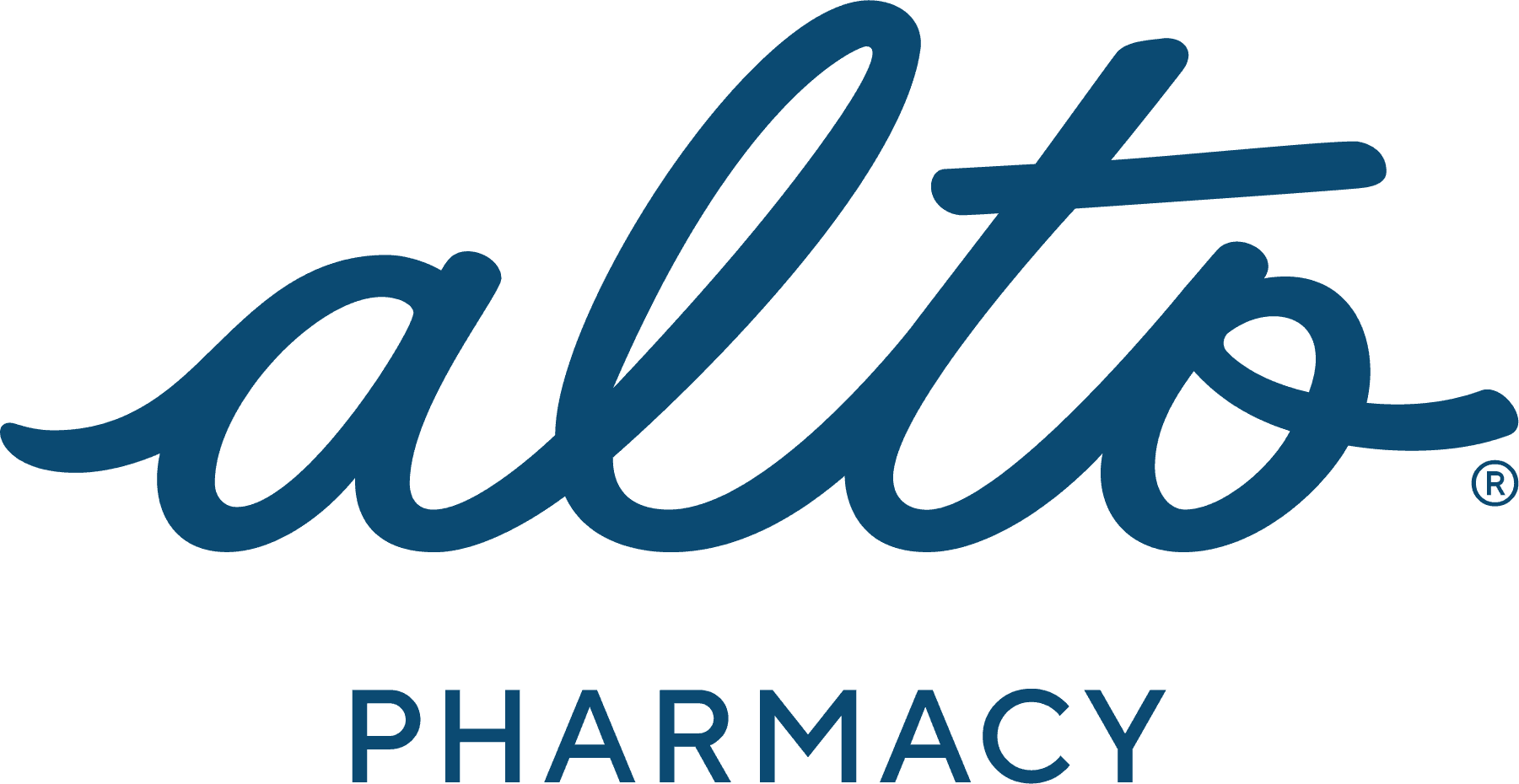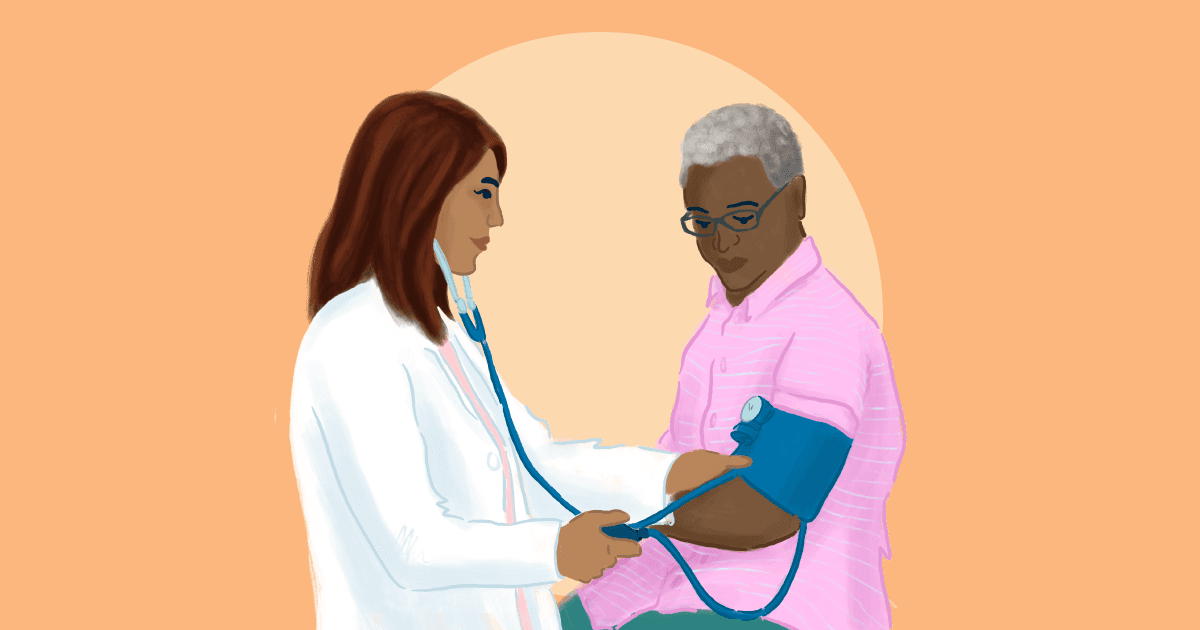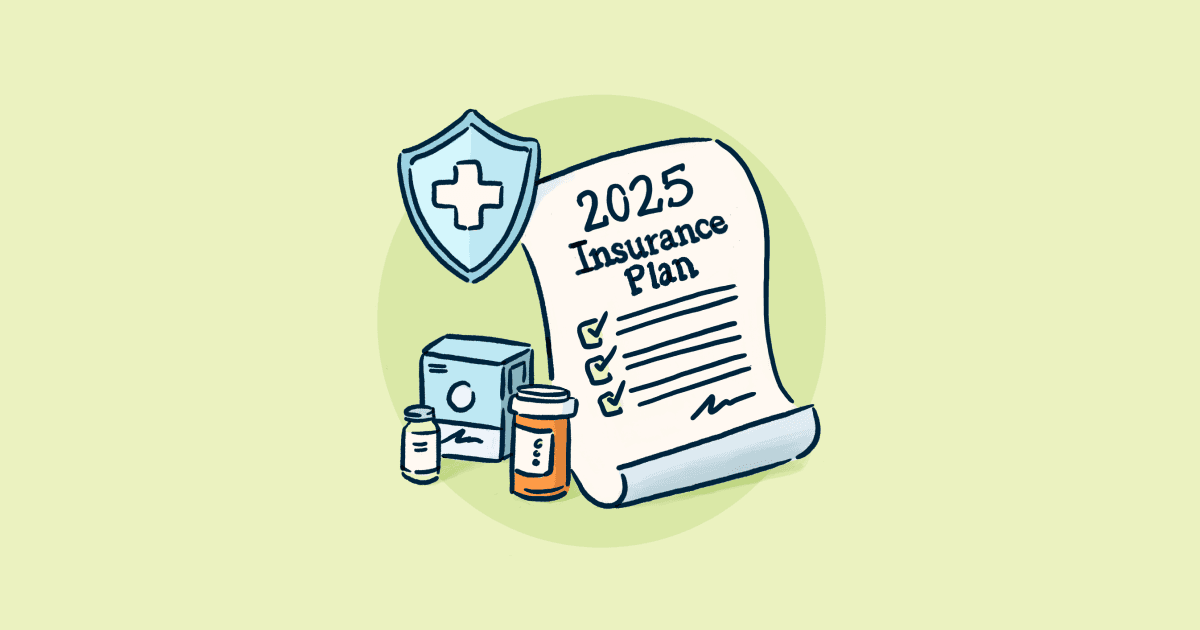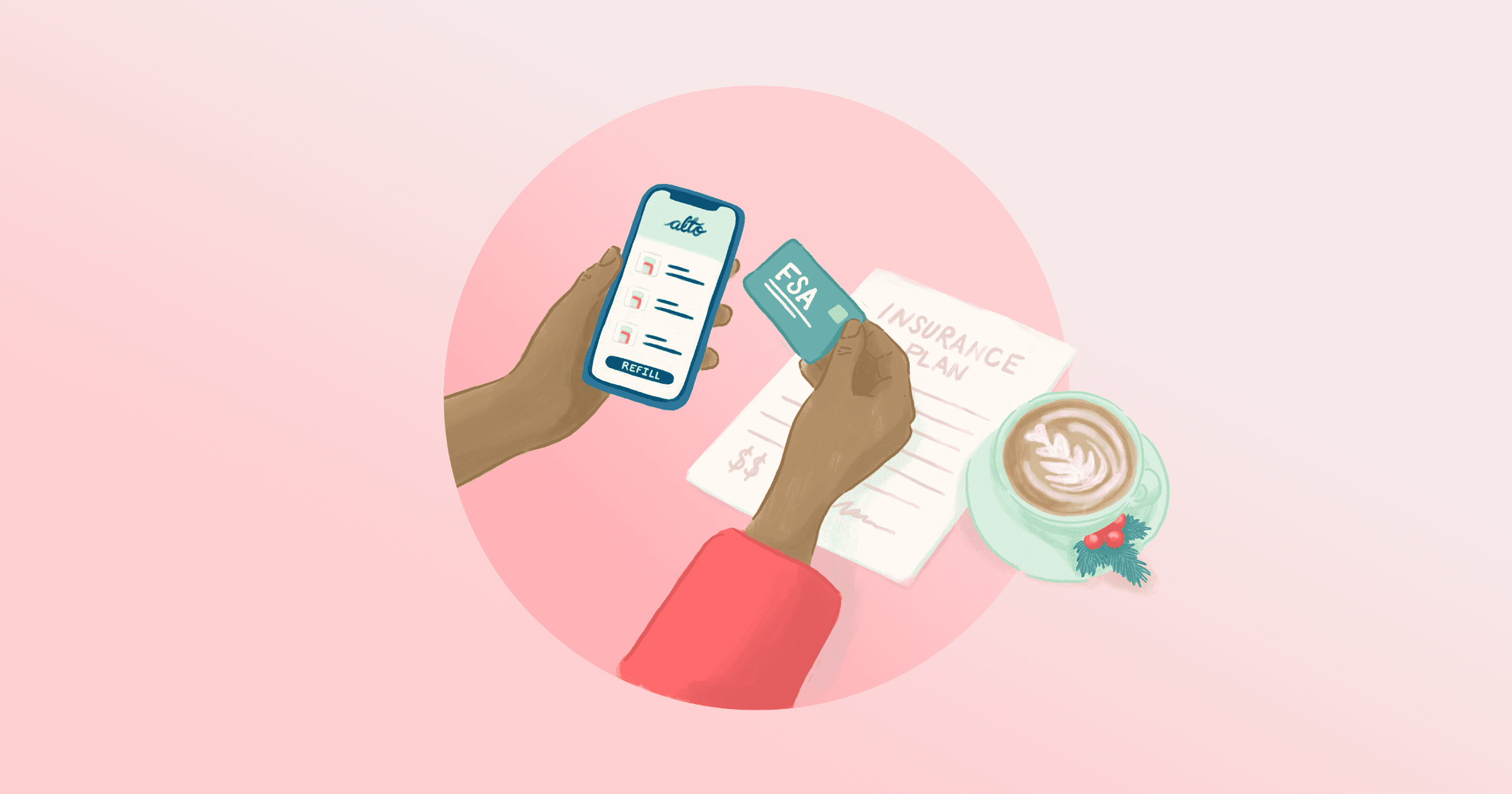Nearly half of all US adults have high blood pressure, a key risk factor in the development of heart disease. While high blood pressure, or hypertension, is manageable, only 24% of those with the condition have it under control, and many people who could benefit from medication aren’t receiving the treatment they need.
If your doctor has recommended blood pressure medication, you may have concerns about beginning this treatment approach rather than focusing on lifestyle changes alone. Keep in mind that, unlike age or genetics, high blood pressure is a heart disease risk factor you have some control over. It’s important to take whatever steps you can to strengthen your heart health and prevent heart attacks and stroke. Depending on your blood pressure readings and overall health history, this may include taking hypertension medication.
Below, we explain more about treatment options for high blood pressure and when it may be necessary to take medication.
Blood pressure basics
Blood pressure is the force your heart uses to pump oxygen-rich blood and deliver it to organs and tissues throughout your body. Healthy blood pressure is critical to many areas of your health. It keeps the heart from working too hard and supports healthy kidney function, allowing your kidneys to remove excess fluid and toxins from your body.
Defining high blood pressure
A blood pressure reading has two components: systolic and diastolic blood pressure.
Systolic blood pressure is the force of blood flowing out of your heart and into your arteries.
Diastolic blood pressure is the force created when your heart fills with blood while resting between beats.
Blood pressure readings present your systolic blood pressure over your diastolic blood pressure. High blood pressure is defined as a blood pressure reading that is consistently higher than 130 over 80 mm Hg. More severe high blood pressure, also referred to as stage 2 hypertension, is defined as a reading of 140+ over 90+ mm Hg.
High blood pressure affects your body in many ways. It causes the heart to work harder, stretching or harming blood vessels and accelerating the accumulation of plaque in your arteries. Over time, this may lead to heart disease, heart attack, or stroke.
It can also damage other important organs:
Narrowed or blocked arteries can block blood flow to the brain.
Narrowed or blocked blood vessels prevent the kidneys from performing key functions such as filtering blood or regulating blood pressure.
Damaged blood vessels in the retina can lead to eye disease or loss of vision.
Lifestyle changes that may lower blood pressure
Treatment for high blood pressure includes both lifestyle changes and medications. The following habits and practices are an important component of managing high blood pressure even if you take blood pressure medication.
Diet: The American Heart Association recommends limiting your daily sodium intake to 1,500 mg, as high sodium consumption can increase blood pressure. Processed or prepackaged foods are common sources of sodium, in addition to salt. On the other hand, be sure to incorporate fruits, vegetables, fish, and foods rich in omega-3 fatty acids into your meal planning.
Regular exercise: Moderate physical activity can also support healthy blood pressure. Aim for 150 minutes of moderate-intensity aerobic exercise per week, or about 30 minutes each day.
Stress management: Though research on the long-term relationship between stress and hypertension isn’t definitive, we know that adrenaline and cortisol — the hormones released when the body experiences stress — can increase your heartbeat and narrow your blood vessels. Focus on positive ways to prevent or reduce stress, including exercise and mindfulness practices.
Smoking cessation: Quitting smoking can help lower your blood pressure and your overall risk for heart disease.
Moderate alcohol consumption: Heavy drinking is associated with high blood pressure. The CDC recommends limiting alcohol intake to two alcoholic drinks per day for men and one for women.
When does a doctor prescribe blood pressure medication?
When developing hypertension treatment recommendations, your doctor will look at the whole picture of your health — specifically your risk for heart disease — not just your blood pressure. The higher your overall risk for heart health issues, the more likely you are to benefit from blood pressure medication.
These are some of the health factors your doctor will consider:
Your age
Lifestyle factors, such as if you smoke
Other health conditions, such as type 2 diabetes or high cholesterol
Your family health history
In some cases, your doctor may prescribe hypertension medication after first exploring lifestyle changes. However, if you have very high blood pressure, medication may be necessary as a first-line treatment.
What are the most common blood pressure medications?
There are a variety of physiological approaches to lowering blood pressure, and different blood pressure medications function differently. They may:
Help your body get rid of water
Relax your blood vessels
Cause your heart to beat with less force
Block nerve activity to prevent blood vessels from constricting
These are some commonly prescribed classes of blood pressure medications.
Diuretics
Diuretics help the body get rid of excess sodium and water, reducing the volume of fluid in blood vessels. Commonly prescribed diuretics include:
Chlorthalidone (Thalitone®, Tenoretic®, and Clorpres®)
Hydrochlorothiazide (HydroDiuril®, Microzide®, and Esidrix®)
Indapamide (Lozol®)
ACE inhibitors
ACE inhibitors block production of a hormone called angiotensin II, which causes blood vessels to narrow. These medications expand constricted blood vessels so that more blood can flow through. Commonly prescribed ACE inhibitors include:
Benazepril (Lotensin®)
Enalapril (Vasotec®)
Fosinopril (Monopril®)
Lisinopril (Prinivil®, Zestril®)
Ramipril (Altace®)
Angiotensin II receptor blockers
Like ACE inhibitors, angiotensin II receptor blockers (ARBs) target the hormone angiotensin II to prevent blood vessels from narrowing. Commonly prescribed ARBs include:
Candesartan (Atacand®)
Irbesartan (Avapro®)
Losartan (Cozaar®)
Telmisartan (Micardis®)
Valsartan (Diovan®)
Calcium channel blockers
Calcium channel blockers prevent calcium from entering the smooth muscle cells of the heart and blood vessels, helping the heart beat with less force. Commonly prescribed calcium channel blockers include:
Amlodipine (Norvasc®, Lotrel®)
Diltiazem (Cardizem CD®, Cardizem SR®, Dilacor XR®, Tiazac®)
Nifedipine (Adalat CC®, Procardia XL®)
Verapamil (Calan SR®, Covera HS®, Isoptin SR®, Verelan®)
Beta blockers
Beta blockers cause the heart to beat less forcefully while opening up the veins and arteries. Commonly prescribed beta blockers include:
Atenolol (Tenormin®)
Bisoprolol (Zebeta®)
Metoprolol tartrate (Lopressor®)
Metoprolol succinate (Toprol-XL®)
Propranolol (Inderal®)
Sotalol (Betapace®)
When the above medications aren’t effective at lowering high blood pressure, a doctor may prescribe other types of medications, including alpha blockers, alpha-beta blockers, and vasodilators.
How will my doctor pick the right blood pressure medication for me?
Blood pressure management varies by individual, and there is no one best medication. Your doctor will consider several factors when recommending a medication, including:
Your overall heart health and risk for cardiovascular issues
Other health conditions you may have
Other medications you take and potential interactions
High blood pressure frequently intersects with other health conditions, including kidney disease, heart disease, diabetes, and heart failure, so your doctor may recommend a treatment approach that targets several conditions at once. This may mean taking more than one blood pressure medication.
There are a variety of blood pressure medications, and it may take time for you and your doctor to determine the best treatment for your needs.
What if my medication causes side effects?
Like most medications, many common blood pressure medications have the potential for side effects. For example, diuretics have been associated with thirst, dehydration, and decreased potassium levels.
The good news is that with the variety of medications to consider, you have other options if you have a negative response to any single medication. Remember, too, that in many cases, the benefits of a blood pressure medication outweigh the potential risks or possibility of side effects.
The pharmacy care you deserve
At Alto, we make it as simple as possible to stay on top of your blood pressure-lowering medications. We offer same-day delivery and medication management tools like reminders and auto refills in our app. And our expert pharmacists are always just a message away!
To learn more, reach out via in-app messaging.
This content is not intended to be a substitute for professional medical advice, diagnosis, or treatment. Always seek the advice of your physician or another qualified health provider with any questions you may have regarding a medical condition.

















